THIS is my last column as editor of Business Day. It has been an honour and a privilege to be afforded an opportunity such as this, and I have grown much in the time I have been here. I am particularly grateful to everyone of my newsroom colleagues for embracing what we were trying to do. I wanted Business Day to occupy pride of place in the South African consciousness because of the issues we elected to cover, and how we did so. I hope we chose well and managed to be responsive to the complexity that is our country.
It was also my wish for it to be a place of intellectual freedom, where differing views could be accommodated. This is not easy when sections of the population expect protection from views they do not like, and mistake an editor for a censor. There were some difficult moments, but I always found the robust debate we had to be good for the quality of our decisions.
The readers of this newspaper and its related platforms have been wonderful. Peter Bruce, the former editor, has massive shoes and I was worried sick about placing mine next to his and beginning a journey with our readers. Unless I missed it, I found that they embraced the journey and offered us many lessons on the meaning of being South African.
What pleased me the most was the constant flow of evidence that our newsroom, and our readers, shared a deep love for this country. Despite the differing views offered daily, all still pointed to a deep connection to SA, and an unflinching care for what happens to its future.
We pursued some of the most important stories because we believed it was good for the country and its people. From the young Andiswa Maqutu to seasoned journalists such as Carol Paton, there was an unmistakable feeling that there was a bigger conviction at work. All my colleagues carried their beats with honour and dedication, and I am gutted the economic environment did not allow us to reward them in the manner that may have been possible in the past. They are real heroes because they contribute to the truth-telling our country needs so much, and sometimes do so at a very high risk to themselves.
One of the big lessons I learned is that you almost always publish significantly less than you know. That is partly because not everything can be verified, but also to protect sources of information. I have met dozens of people during my time as editor and an uncomfortably high number have told me things that are extremely worrisome. Frightening, actually.
From these interactions, as well as information that is in the public domain, I am sorry to say that our country is in serious trouble. We no longer know how to look out for its future, and have allowed dishonest people and the gangsters that help them feed off the public purse to rule the roost. We have allowed ourselves to be swayed by cheap political rhetoric and to have the scars of apartheid and colonialism abused by forces of skulduggery.
The dishonest and opportunistic know how to divide us by accentuating our historical differences to create bogus moral deadlocks, when we really need to ask serious questions about governance, and how the future of our children is being compromised.
There are those whose task appears to be distraction. When you ask questions about the theft of public funds, they remind you to ask questions about private sector corruption instead. They do this as if private sector corruption is a mitigating factor when officials steal from the poor.
They do a fine job of delegitimising valid questions from South Africans from all walks of life, and many of us join in the feeding frenzy because, once again, our scars are abused to keep us apart and to defend the indefensible. I know there was a time when people like me were repeatedly called names, even agents of foreign saboteurs, for honestly sharing our observations with our compatriots. Some of those people are now unrestrained critics of the status quo.
If there is any lesson I have learned, it is that you sleep a lot easier at night, and will have better answers for future generations, if you put the country and its people first. We have a responsibility to confront even those matters that make us uncomfortable, because they show our prejudices and biases.
We will be a better people and country if we learn to speak honestly to one another, and do so always with the goal of looking to build a new society. It is the only way we can make bigotry a thing of the past, so it can no longer be used to delegitimise genuine concerns. Journalists and public officials such as the public protector are only fleeting. What will remain are values that, even if they challenge us, will endure and make ours the great country it can be.
We can no longer look to others to fight our battles for us while we "support" them with calls to radio stations and comments on social media.
As much as many may have enjoyed my feeble attempts at truth-telling in this column every Monday, it is only our collective action that will deliver the results we need. Everything else, no matter how well-meaning, is complicity in its destruction.
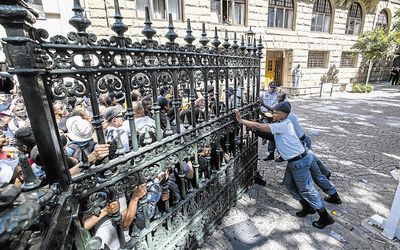
It is only our collective action that will deliver the results we need, says Songezo Zibi. Picture: THE TIMES
THIS is my last column as editor of Business Day. It has been an honour and a privilege to be afforded an opportunity such as this, and I have grown much in the time I have been here. I am particularly grateful to everyone of my newsroom colleagues for embracing what we were trying to do. I wanted Business Day to occupy pride of place in the South African consciousness because of the issues we elected to cover, and how we did so. I hope we chose well and managed to be responsive to the complexity that is our country.
It was also my wish for it to be a place of intellectual freedom, where differing views could be accommodated. This is not easy when sections of the population expect protection from views they do not like, and mistake an editor for a censor. There were some difficult moments, but I always found the robust debate we had to be good for the quality of our decisions.
The readers of this newspaper and its related platforms have been wonderful. Peter Bruce, the former editor, has massive shoes and I was worried sick about placing mine next to his and beginning a journey with our readers. Unless I missed it, I found that they embraced the journey and offered us many lessons on the meaning of being South African.
What pleased me the most was the constant flow of evidence that our newsroom, and our readers, shared a deep love for this country. Despite the differing views offered daily, all still pointed to a deep connection to SA, and an unflinching care for what happens to its future.
We pursued some of the most important stories because we believed it was good for the country and its people. From the young Andiswa Maqutu to seasoned journalists such as Carol Paton, there was an unmistakable feeling that there was a bigger conviction at work. All my colleagues carried their beats with honour and dedication, and I am gutted the economic environment did not allow us to reward them in the manner that may have been possible in the past. They are real heroes because they contribute to the truth-telling our country needs so much, and sometimes do so at a very high risk to themselves.
One of the big lessons I learned is that you almost always publish significantly less than you know. That is partly because not everything can be verified, but also to protect sources of information. I have met dozens of people during my time as editor and an uncomfortably high number have told me things that are extremely worrisome. Frightening, actually.
From these interactions, as well as information that is in the public domain, I am sorry to say that our country is in serious trouble. We no longer know how to look out for its future, and have allowed dishonest people and the gangsters that help them feed off the public purse to rule the roost. We have allowed ourselves to be swayed by cheap political rhetoric and to have the scars of apartheid and colonialism abused by forces of skulduggery.
The dishonest and opportunistic know how to divide us by accentuating our historical differences to create bogus moral deadlocks, when we really need to ask serious questions about governance, and how the future of our children is being compromised.
There are those whose task appears to be distraction. When you ask questions about the theft of public funds, they remind you to ask questions about private sector corruption instead. They do this as if private sector corruption is a mitigating factor when officials steal from the poor.
They do a fine job of delegitimising valid questions from South Africans from all walks of life, and many of us join in the feeding frenzy because, once again, our scars are abused to keep us apart and to defend the indefensible. I know there was a time when people like me were repeatedly called names, even agents of foreign saboteurs, for honestly sharing our observations with our compatriots. Some of those people are now unrestrained critics of the status quo.
If there is any lesson I have learned, it is that you sleep a lot easier at night, and will have better answers for future generations, if you put the country and its people first. We have a responsibility to confront even those matters that make us uncomfortable, because they show our prejudices and biases.
We will be a better people and country if we learn to speak honestly to one another, and do so always with the goal of looking to build a new society. It is the only way we can make bigotry a thing of the past, so it can no longer be used to delegitimise genuine concerns. Journalists and public officials such as the public protector are only fleeting. What will remain are values that, even if they challenge us, will endure and make ours the great country it can be.
We can no longer look to others to fight our battles for us while we "support" them with calls to radio stations and comments on social media.
As much as many may have enjoyed my feeble attempts at truth-telling in this column every Monday, it is only our collective action that will deliver the results we need. Everything else, no matter how well-meaning, is complicity in its destruction.


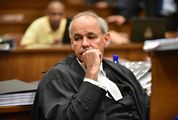
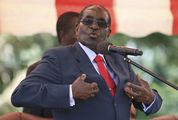
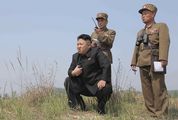
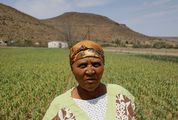


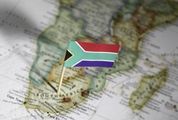












Change: 0.80%
Change: 0.61%
Change: -0.25%
Change: 0.13%
Change: 4.02%
Data supplied by Profile Data
Change: 1.13%
Change: 0.37%
Change: 0.80%
Change: 0.00%
Change: 0.33%
Data supplied by Profile Data
Change: -2.03%
Change: -1.51%
Change: -1.45%
Change: -2.26%
Change: -0.91%
Data supplied by Profile Data
Change: 0.07%
Change: 3.71%
Change: 2.65%
Change: 3.36%
Change: 4.99%
Data supplied by Profile Data